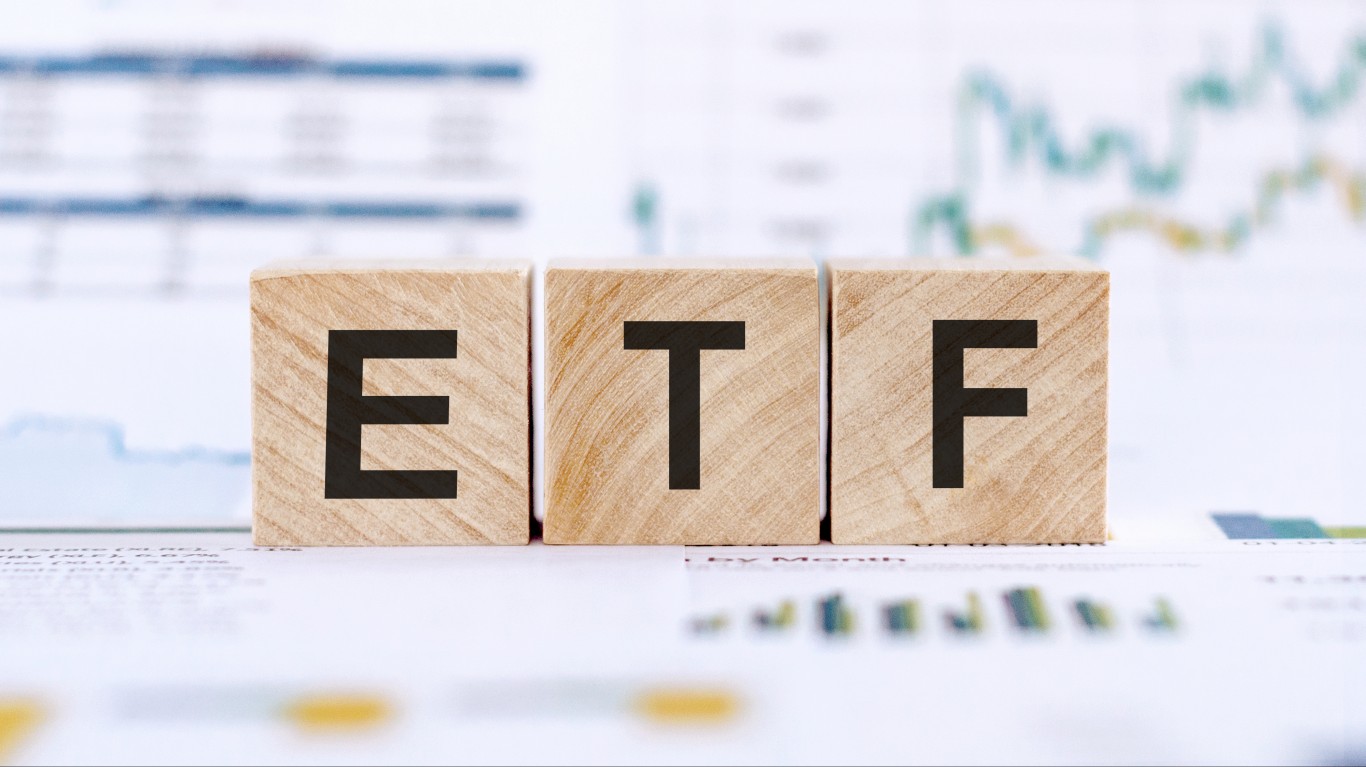
With a universe of thousands of stocks to choose from, finding stocks to buy should be easy. But while you could fill up your portfolio with dozens or even hundreds of stocks, at that point you’re better off just buying an index fund and being done with it.
Warren Buffett takes a different approach to investing. He observes what he calls his “20-slot rule” and it’s a good strategy to copy. According to the Oracle of Omaha’s rule, think of your stock picks as a punch card with just 20 slots. After filling up your card, you’re not allowed to buy anymore stocks.
By following this reasoning, you would make sure that every stock you bought was the very best investment. As Buffett noted, “You’d really have to think carefully about what you did. And you’d be forced to load up on what you really think about. So you’d do much better.”
So by considering your next investment as one of only a handful you are allowed to make in your lifetime, make it one of these three stocks.
Key Points About This Article:
- Be very selective about the stocks you buy for your portfolio and make each one count by adopting Warren Buffett’s “20-slot rule.”
- You will have all of your money working for you all of the time if you imagine you can only buy 20 stocks in your lifetime and choose only the best ones.
- If you’re looking for some stocks with huge potential, make sure to grab a free copy of our brand-new “The Next NVIDIA” report. It features a software stock we’re confident has 10X potential.
Mastercard (MA)

As the second largest credit card issuer, there’s a good chance you have a Mastercard (NYSE:MA) credit card in your wallet. There are approximately 3.4 billion Mastercard and Maestro-branded cards in circulation. In comparison, Visa (NYSE:V) has 4.5 billion issued.
Mastercard (and Visa) doesn’t actually issue the cards itself, its clients do. It just provides the branding and the payments processing system. Mastercard’s payment volume was $2.4 trillion in the second quarter, a 9% increase from the year ago period. Revenue grew 13% on a currency-adjusted basis to $7 billion while earnings rose 13% to $3.50 per share.
The fact that Mastercard doesn’t issue credit cards itself, though, is one of the strong reasons why its stock is a buy. It completely derisks the company from any negative fallout arising out of a recession. Delinquencies and payment defaults impact the card issuer, not Mastercard.
Although a recession could hurt consumer spending, which would cause a decline in payment volume, the long-term effect is for consumer spending to grow. Economic downturns tend to not last nearly as long as periods of economic expansion, meaning Mastercard is a good, all-weather stock to own.
Amazon (AMZN)

Online retailer Amazon (NASDAQ:AMZN) fell hard after its second-quarter earnings report missed analyst expectations as did its guidance for the third quarter. While growth slowed, the blame can be put on consumers weary from inflation. After easing back from historic highs, inflation began marching higher again.
The real star for Amazon, and the bigger growth driver for the future, is its AWS cloud services business. Revenue jumped 19% year-over-year to a record $26.3 billion, and as more businesses migrate data to the cloud and demand for artificial intelligence grows, AWS should continue this upward trajectory. AWS market share grew to 32% in the second quarter from 31% in the first quarter.
AMZN stock has bounced 15% off the lows following earnings and looks positioned to grow further. The e-commerce business will come around again in time, all the while AWS funnels profits into the coffers. Amazon is a stock you can feel confident about punching your card with.
SPDR S&P 500 ETF Trust (SPY)

I said at the start that it would be better to buy an index fund than pick up a hundred stocks in a willy-nilly fashion. For many investors of all stripes, buying the S&P 500 index is probably the best investment you can make. Its long-term performance over many decades is incredibly consistent, returning 10.5% on average.
It’s why the S&P 500 is considered the benchmark index. If you can’t beat it, you may as well buy it. And one of the best ways for doing so is with the SPDR S&P 500 ETF Trust (NYSEARCA:SPY).
Although the S&P 500 wasn’t created until 1957, the analysts at Crestmont Research back-tested the index to 1900 and found that through the end of 2023, the SPDR ETF would have enjoyed 104 consecutive years of positive returns. By analyzing rolling 20-year total returns, including dividends paid, it discovered that as long as an investor didn’t sell, he would never experience a single year of negative returns.
While the stock market today is much different (and better) than it was at the turn of the previous century, the index’s returns are also much better. It’s why the SPDR ETF remains one of the best stocks to buy.
In 20 Years, I Haven’t Seen A Cash Back Card This Good
After two decades of reviewing financial products I haven’t seen anything like this. Credit card companies are at war, handing out free rewards and benefits to win the best customers.
A good cash back card can be worth thousands of dollars a year in free money, not to mention other perks like travel, insurance, and access to fancy lounges.
Our top pick today pays up to 5% cash back, a $200 bonus on top, and $0 annual fee. Click here to apply before they stop offering rewards this generous.
Flywheel Publishing has partnered with CardRatings for our coverage of credit card products. Flywheel Publishing and CardRatings may receive a commission from card issuers.
Thank you for reading! Have some feedback for us?
Contact the 24/7 Wall St. editorial team.





